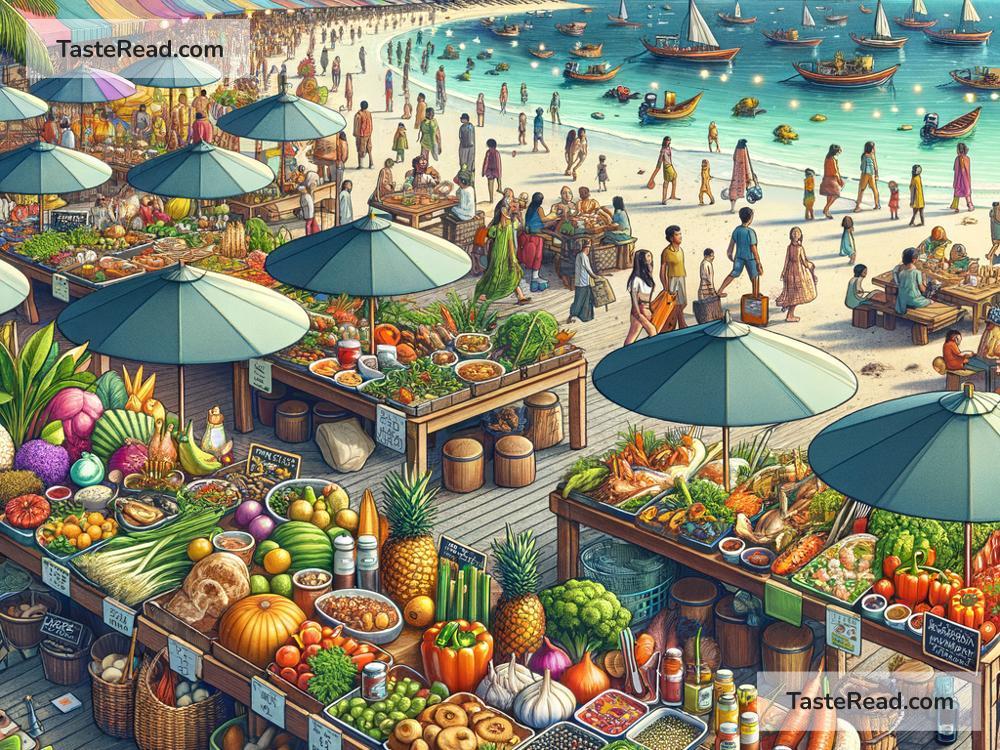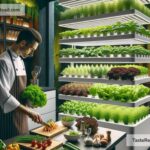The Future of Food and Sustainable Tourism: A Path Toward a Greener Tomorrow
The world is changing fast, and so are the ways we eat and travel. With global challenges like climate change, deforestation, and plastic pollution becoming more serious, people everywhere are looking for solutions. Two industries that will play a big role in creating a better future are food and tourism. In this blog post, we’ll explore how the future of food is connected to sustainable tourism and how both can help build healthier communities and protect our planet.
The Future of Food: A Focus on Sustainability
Food is essential for life, but the way we produce, transport, and consume it today has a big impact on the environment. Agriculture accounts for a large portion of carbon emissions, deforestation, and water use. At the same time, food waste is a major global issue. Experts believe the future of food lies in making farming and eating more sustainable.
Here are a few exciting ways the future of food is becoming greener:
1. Plant-Based Diets
More people are switching to plant-based diets, choosing fruits, vegetables, legumes, and grains over meat and dairy. Plant-based foods require fewer resources—like land and water—to produce. Plus, they produce less greenhouse gas compared to raising animals. Many companies now offer delicious plant-based meat alternatives, making this lifestyle easier for people to adopt.
2. Vertical Farms and Urban Agriculture
In big cities, space is limited, but technology is solving the problem. Vertical farms use tall buildings to grow crops in stacked layers, saving land and energy. Urban agriculture allows communities to grow food right where they live, reducing transportation costs and carbon emissions.
3. Lab-Grown Meat
Another futuristic idea is “cultured meat,” grown in labs from animal cells. This avoids the environmental damage of raising livestock while still giving people the taste of real meat. While lab-grown options are still expensive, scientists are working toward making them affordable for everyone.
4. Reducing Food Waste
About one-third of the world’s food is wasted every year. Technology like smart packaging and better storage solutions can help keep food fresh for longer. Apps that connect leftover food to people who need it are also growing in popularity.
5. Technology for Farmers
Drones, AI, and satellite mapping are helping farmers grow crops more efficiently, using less water and fertilizer. These tools allow farmers to monitor their fields, predict weather patterns, and manage resources better.
Sustainable Tourism: Traveling Kindly
Travel and tourism allow people to explore new cultures and enjoy the beauty of nature. But tourism can also harm the environment through over-tourism, pollution, and the destruction of natural habitats. The future of travel lies in sustainable tourism—visiting places in ways that protect the environment, support local communities, and preserve cultures.
Here are some trends shaping the future of sustainable tourism:
1. Eco-Friendly Accommodations
Hotels and resorts are adopting greener practices by using renewable energy, reducing water usage, and replacing single-use plastics with reusable alternatives. Some eco-friendly accommodations even allow tourists to stay in solar-powered cabins or treehouses surrounded by nature.
2. Community-Based Tourism
Sustainable tourism also focuses on helping local communities. Travelers can participate in tours hosted by locals, buy handmade crafts, or eat at family-owned restaurants. These small businesses benefit directly, lifting local economies instead of sending profits to big corporations.
3. Carbon Neutral Travel
Airplanes contribute to carbon emissions, but solutions like carbon offset programs can reduce their impact. Airlines and tour companies are working on projects like planting trees or investing in renewable energy to balance emissions created during travel.
4. Protecting Wildlife and Nature
Many travelers want to see animals or visit beautiful places, but tourism can harm the wildlife or damage ecosystems. Eco-tourism aims to protect nature while allowing visitors to enjoy it responsibly. For example, instead of riding elephants, tourists can join wildlife observation tours led by conservation experts.
5. Slow and Local Travel
Slow travel involves spending more time at one place rather than rushing from one attraction to another. This allows travelers to deeply connect with a culture, reduce their environmental footprint, and avoid contributing to over-tourism hotspots.
How Food and Tourism Come Together
Food and travel are deeply connected. Every destination offers unique cuisines, traditions, and experiences tied to its culture. Sustainable food practices and tourism go hand in hand to create responsible and meaningful journeys.
For example:
– Travelers can try local, farm-to-table restaurants that serve fresh, seasonal food. This supports local farmers while reducing the carbon footprint of imported goods.
– Food festivals and culinary tours can introduce tourists to cultural traditions while preserving them for future generations.
– Tourists can engage in agricultural activities like harvesting crops, learning to cook local dishes, or visiting wineries. These activities build stronger connections between travelers and communities.
Why Sustainability Matters
The future of food and tourism is about more than just reducing emissions or cutting down waste. It’s about creating a world where humans, animals, and nature can thrive together. Sustainable practices protect our planet for future generations, ensuring we can continue to enjoy great meals, explore breathtaking destinations, and learn from one another.
Both industries have a long way to go, but the changes happening today are a step in the right direction. By choosing plant-based meals, avoiding food waste, staying at eco-friendly hotels, and traveling responsibly, every individual can contribute. Together, we can create a brighter, greener future.
The future of food and sustainable tourism invites us to think differently about how we live, eat, and travel. It’s an exciting journey filled with innovation, community, and care for the Earth. Let’s embrace these changes and make our actions count toward a better tomorrow.


